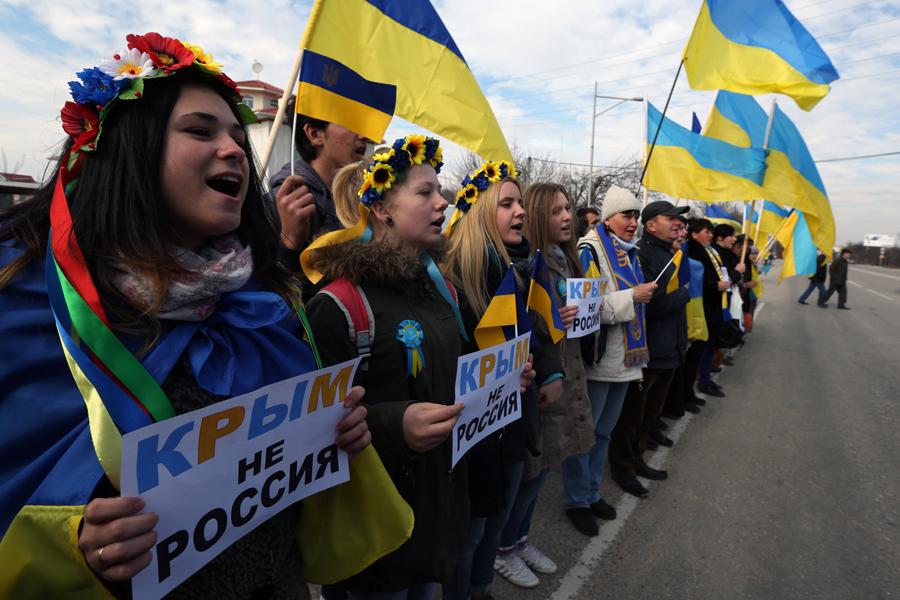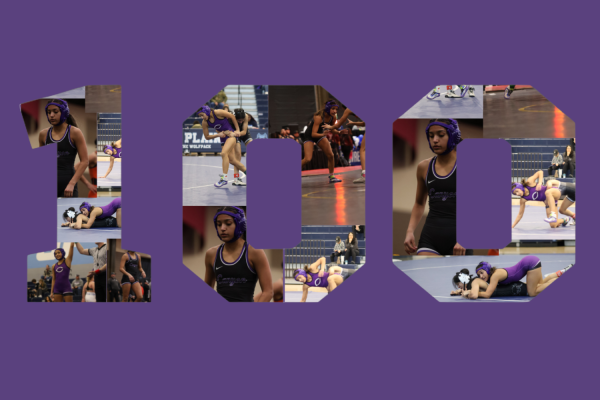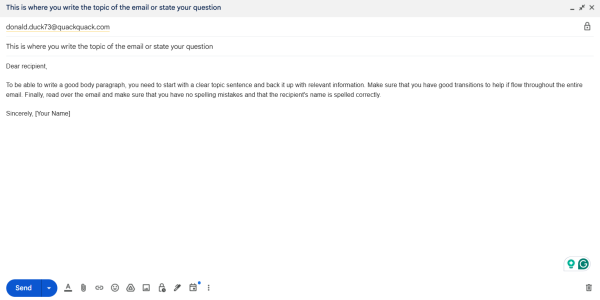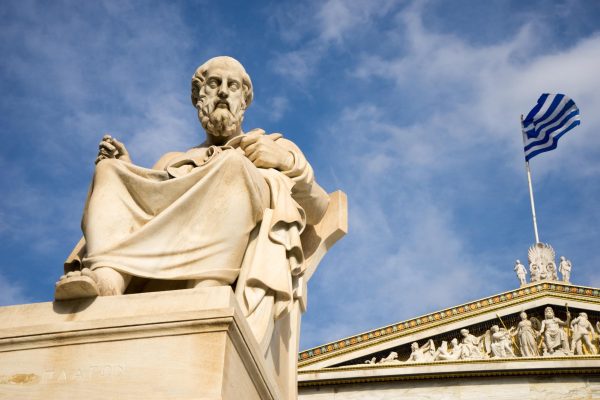For Crimea’s residents, a difficult choice: become Russian or leave
Sergei L. Loiko/Los Angeles Times/MCT
Anti-war demonstrators hold signs which read, “Crimea is not Russia,” during a protest action in Simferopol, Ukraine, on Friday, March 14, 2014.
The Russian tricolor is not yet ubiquitous in the Black Sea resort town of Yalta, made infamous by a World War II agreement that divided up the world, but many native Russian speakers give a thumbs-up when they’re asked what it’s like now that it’s ruled from Moscow, not Kiev.
For everyone else, however, it’s a nightmare come true that’s forced them to choose between taking Russian citizenship and submitting to rule from Moscow, or fleeing.
Many native Ukrainian speakers, who compose at least 24 percent of Crimea’s 2 million population, are packing their bags after Crimea voted in a referendum last month to become part of Russia. But Crimean Tatars, the Muslim ethnic group that composes 14 percent and has built a thriving civil society since returning from exile when the Soviet Union collapsed in 1991, say they’re staying, and they won’t accept the takeover.
The Tatars’ Mejlis, an informal assembly, voted last weekend to demand that the U.N.-defined right to self-determination apply to them, as Crimea’s indigenous people. The assembly called for “national territorial autonomy.” It’s not clear just what that means, nor how Russian leader Vladimir Putin will deal with it.
But Mustafa Dzhemilev, who was exiled as an infant and became a legendary dissident in Soviet times and then a top political leader here after he returned to Crimea with the collapse of communism, is not about to throw in the towel.
Dzhemilev, who’s on a U.S. tour to drum up sympathy for Tatar rights, said the Muslim minority backed the Maidan revolution in Kiev that toppled Ukraine’s pro-Russian president, Viktor Yanukovych, because it had never been able to regain its old property under the pro-Russian local governments that had ruled Crimea since Ukraine became an independent country in 1991.
Now he’s telling reporters and think tank audiences in the United States that a second deportation for the Tatars, whom Josef Stalin forcibly expelled to Uzbekistan in 1944, is in the offing. During a closed session of the U.N. Security Council on Monday, he said Tatars had been told to obtain Russian passports this month or face being treated as foreigners, ineligible to vote or work in state institutions.
If they accept Russian citizenship, they’ll be “completely deprived of the opportunity to even discuss the status of the territory” or hold a referendum, Dzhemilev said, according to the Russian-language text of his remarks released by the Mejlis. That would be considered a call for separatism, punishable by five years in jail. Some of the local “self-defense forces” have called for a second deportation, he said.
“Thus, they will be forced to leave their homeland. Can you imagine what it’s like for the Crimean Tatars, after deportation and genocide in 1944 and after years of fighting for the right to return to their homelands?” he asked in his U.N. remarks.
Ukrainians are voting with their feet: The outflow of vehicles to the Ukrainian mainland, 6,000 to 7,000 daily, is triple the usual flow; Dzhemilev said 5,000 Tatars had also fled.











